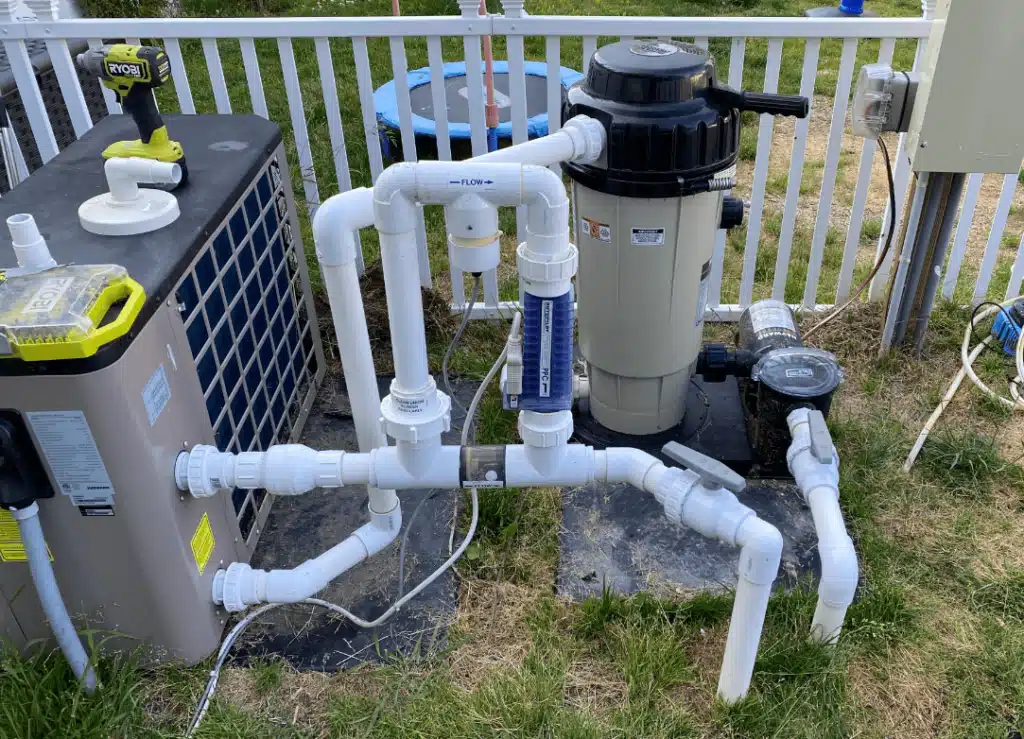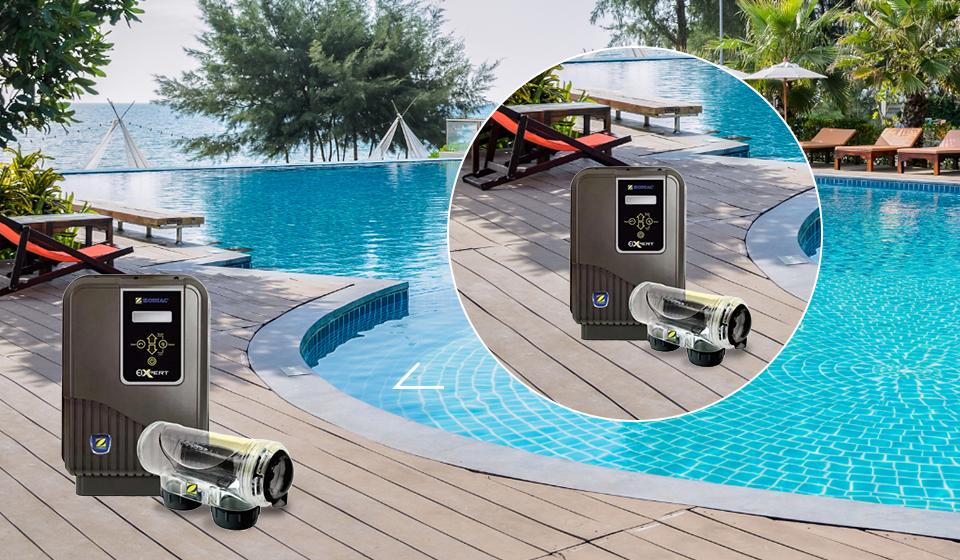A saltwater pool is a state-of-the-art solution for keeping the pool clean and a safe swimming environment. With this system, you can easily maximise your pool care. Through automatic chlorine creation, this novel method effectively and naturally disinfects water, improving its quality.
Saltwater pool chlorinators use natural salt to produce chlorine, producing clean water gentle to the skin, eyes, and pool parts. The gentle salinity eliminates the harsh chemical smell and irritation associated with conventional pools. Saltwater pool is the ultimate solution to convenience and quality, with self-maintenance and longer life for your pool investment. Discover why pool owners switch to saltwater systems.
What are Saltwater Pools
Saltwater pools are a cutting-edge replacement for conventional chlorine-based systems. They work straightforwardly: ordinary salt (sodium chloride) is dissolved in pool water and circulated through a saltwater pool chlorinator cell. The cell electrolyser turns the salt into hypochlorous acid without requiring manual chemical additions.
Some Saltwater systems like Zodiac LM3-40 chlorinator cells have sophisticated sensors that track the chemical balance and adjust production accordingly. They adapt to changing conditions, such as temperature changes and weather conditions. Most owners save 80% of their maintenance time by installing saltwater systems.
Component of Saltwater System

Salt Cell: This device uses titanium-coated electrolytic cells that break up dissolved salt into chlorine using electrolysis. Electricity travels through metal plates in the chlorinator cell, causing the chemical process that converts salt into sanitising compounds. Most models have adjustable production levels, which can control chlorine production in precise amounts.
Pool Control Panel: The pool control panel is the centre of your saltwater system. This computerised panel offers advanced monitoring and control functions through an intuitive dashboard. Contemporary panels provide immediate readings of salt, water temperature, pH, and output rates. The control panel monitors the water chemistry, automatically adjusting the chlorine output for optimum sanitising levels.
Advantages of Saltwater Pools
1. Automatic Chlorine Generation: Saltwater systems transform pool maintenance with constant, automatic sanitising. The chlorine generator produces a steady supply of natural chlorine directly in your pool water, eliminating the need for transporting, storing, and handling harsh chemical compounds. This consistent production maintains optimal sanitisation levels around the clock.
2. Maintain Pool Equipment: Saltwater pools extend equipment life significantly with gentler water chemistry and less corrosive materials. Saltwater pool’s ongoing low-level chlorination preserves everything from pool pump impellers to underwater lighting. It helps stabilise pH levels. Homeowners can enjoy years of hassle-free swimming by properly maintaining their pool equipment.
3. Self-Cleaning and Monitoring: Saltwater pools have state-of-the-art self-cleaning features that transform pool and monitoring features. Salt chlorinator cells have cell-cleaning cycles with reverse polarity to prevent mineral buildups, otherwise needing the dreaded maintenance horror. The system monitors water chemistry and cleaning needs based on pool size and season. The two-in-one monitoring and self-cleaning features offer a safe and hygienic swimming environment.
4. Turning Your Pool into a Wellness Oasis: Saltwater pools create a healthy environment that offers genuine health and wellness benefits. Swimming is more pleasurable because of the reduced chlorine content, which avoids irritation of the skin and eyes. In addition to improving skin hydration, the natural salt content relaxes muscles. These pools lessen exposure to chemicals, which improves general health. Having a saltwater pool allows you to enjoy luxury with little maintenance.
Conclusion
Saltwater pool systems provide unparalleled convenience along with improved water quality. Their self-cleaning nature eliminates the chemical upkeep alongside superior water quality. Traditional pools differ from saltwater systems because these pool systems promote an optimal swimming environment with balanced chemical concentration.
Using a saltwater pool system provides a convenient, friendly swimming solution. When homeowners select this system, they will obtain better efficiency, low maintenance costs, and improved health benefits for their swimming experience.

